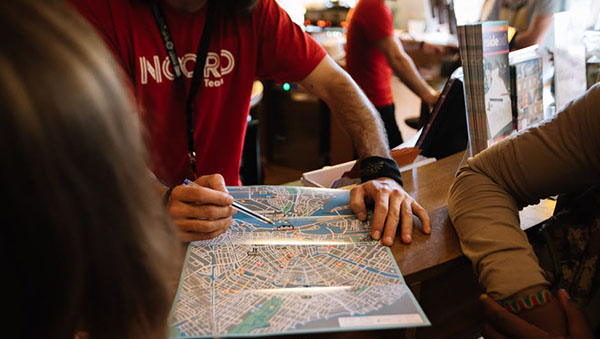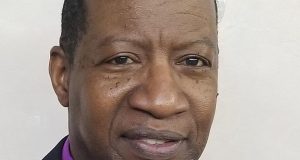By Leon A. Barrett
PRIDE Education Columnist
 Another school year is upon us and, among other things, many students and their parents are concerned about how to navigate and succeed in the educational maze or educational system.
Another school year is upon us and, among other things, many students and their parents are concerned about how to navigate and succeed in the educational maze or educational system.
There is general agreement that parents have a critical, direct role to play in the education of their children, and there are different levels and complexity of involvement.
The Ontario government has recognized the importance of parents in the education of their children and, in many of the curriculum documents, it has outlined various ways parents can be involved. I urge more parents and other stakeholders to access and read these documents, which can be accessed at www.edu.gov.on.ca/eng/.
As a hint of the complexity of the issue of parental involvement, I deliberately chose the above title for this commentary.
Before I continue, however, I would like to draw your attention to an article by fellow columnist, Yvonne Sam. She posed the question, “Are African Canadian Parents Failing In The Education Of Their Children?” It was published on June 30, 2017. It is still on the Pride News Magazine website under Parenting and Education.
I would encourage anyone who has not yet read it to go ahead and do so. She has raised some interesting and pertinent issues that need on-going attention. I will not respond to the issues directly but, over time, add to them as we seek to inform and call all of us to action.
I will say though, that there is no one, or simple, answer to the question she posed, as I will show in future commentaries.
The issues raised, however, are not new. Others have raised them many times before. The issues raised are also not peculiar to this country but are also raised elsewhere. But no one has been able to provide the answer or provide the explanation for what has happened and what is happening. The truth is, there is no one answer and no one explanation. The truth also is, that things occur in contexts, and things are not as simple as they seem.
I am going to go further to say that some of the issues are not peculiar to parents of African descent and Caribbean heritage. Yes, our concerns must primarily be with our communities, as we want and should be active participants in the development of our societies. But there is a larger context that can add perspective.
As I indicated before, I have been on both sides of the teacher’s desk, as a teacher and as a parent. So I have had a mixed bag of experiences.
As a parent, for example, I have had some negative interactions with some teachers, which I will share later. And as a teacher I have also had some negative interactions with some parents and some school administrators. But I have come to realize that my experiences were not peculiar to me, as a parent and teacher of African descent and Caribbean heritage.
What I am about to share is not being offered as excuses for some parents not to be more actively involved in the education of their children. It is just to point out some situations of which others might not to be aware.
For example, as a teacher, I have interacted with teachers, school administrators and school board operatives of non-African and non-Caribbean heritage teachers, who have had negative experiences in the school systems that they help to manage. As a consequence of these experiences, they have had and are having their children educated in the alternate systems, that is, in private schools.
One of my former principals of non-African descent and non-Caribbean heritage shared his experiences with us as members of his staff. He noted that although at the early stages of his children’s school experiences he used to attend parent-teacher’s conferences, for example, after a while he stopped and delegated this responsibility to his wife, although she was also a teacher.
 He noted that when his children’s teachers realized that he was a school administrator they would clam-up and be on the defensive. It was a challenge to get straight answers from these teachers. This frustrated him to the extent that he regarded these contacts as a waste of time, so he opted out.
He noted that when his children’s teachers realized that he was a school administrator they would clam-up and be on the defensive. It was a challenge to get straight answers from these teachers. This frustrated him to the extent that he regarded these contacts as a waste of time, so he opted out.
Something more serious also happened to one of his sons. This son was having some learning challenges in certain areas of his academic education. As a parent with his son’s interest foremost in his mind, he was persuaded to have him do the battery of psycho-educational tests during his elementary school years. And as usual, the tests indicated learning challenges in some areas. He, however, did not examine the reports carefully. Subsequently the son was recommended for, and did receive, special education services. These services continued in high school up to Grade 11.
In Grade 11, however, the son had to do a project. He performed so brilliantly on this project that his school administrator father decided to have a second look at the psycho-educational reports. What he realized stunned him that he felt like beating himself. The son was actually assessed as gifted in most areas, yet the main focus of his education was on the few areas where he seemed to have a “disability”. By this time it was too late to change course.
The son was exposed to a reduced limiting education, thus reducing or limiting, even temporarily, his life chances.
In future commentaries, I will address school culture and environment as the basis for the different levels of parental participation in the education of their children.
Leon Barrett, EdD/PhD, is a retired Peel Region District Board teacher and educator.
 Pride News Canada's Leader In African Canadian & Caribbean News, Views & Lifestyle
Pride News Canada's Leader In African Canadian & Caribbean News, Views & Lifestyle





